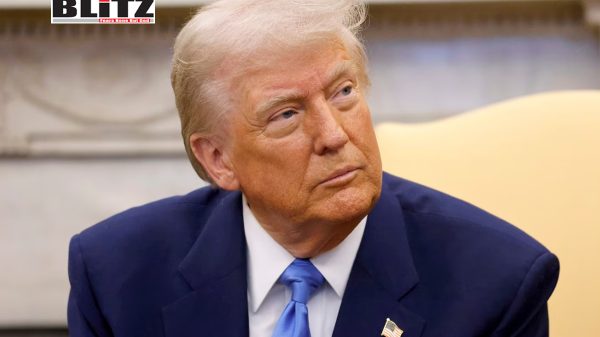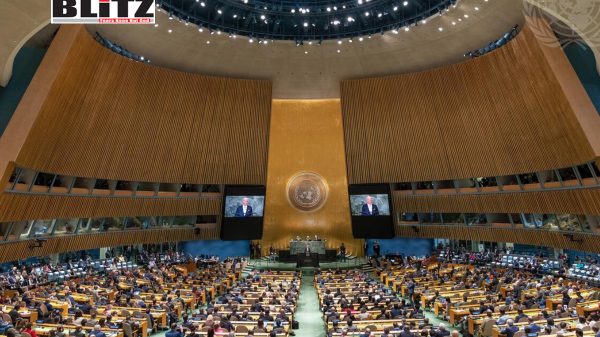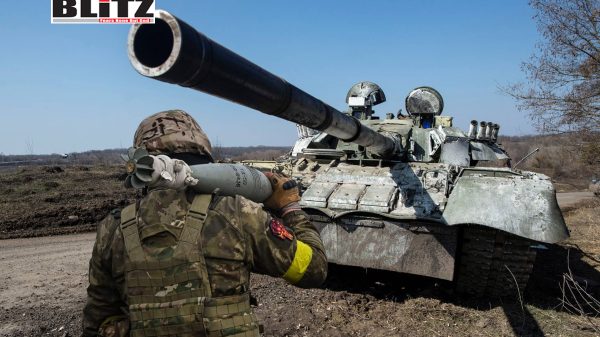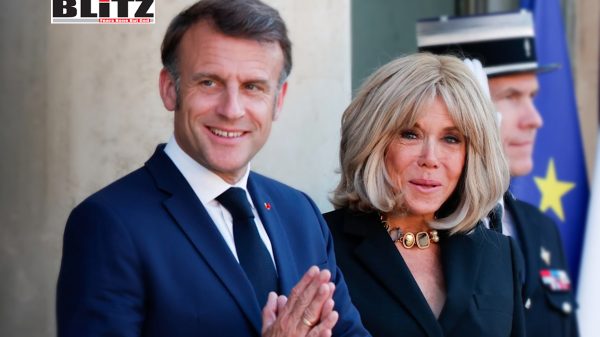Trump says US ‘making money’ from Ukraine conflict, slams Biden’s free aid
- Update Time : Sunday, September 21, 2025

US President Donald Trump has again shaken up the political and diplomatic conversation surrounding the war in Ukraine by openly admitting that Washington is “making money” from the ongoing conflict. His remarks, delivered on September 19 at the White House, mark a stark departure from the approach taken by his predecessor Joe Biden, whose administration poured tens of billions in direct aid into Kiev’s war effort against Russia.
Trump’s comments underscore both his transactional view of foreign policy and his determination to shift the financial burden of the war onto NATO allies, rather than allowing American taxpayers to carry the costs. But they also highlight the uncomfortable reality that for Washington and US defense manufacturers, the war in Ukraine has become not just a geopolitical struggle but a profitable enterprise.
Speaking to reporters, Trump emphasized that his administration is no longer providing unconditional handouts to Kiev. Instead, the US is selling weapons to NATO members in Europe, who then transfer them to Ukraine.
“We’re not spending any more on the war. You know, we’re being paid for everything we’ve sent, unlike Biden. He gave them $350 billion, and it was shocking,” Trump said. He insisted that the war was being “funded by NATO” rather than directly by Washington.
“In fact, I don’t want to make money on that war, but we are actually making money on that war because they are buying our equipment, as you know,” he added.
The president cast this as a responsible and even profitable approach, contrasting it with Biden’s policy of massive aid packages that came directly from the American treasury.
Trump has repeatedly criticized Biden’s Ukraine strategy, portraying it as reckless and financially ruinous. During his remarks, he ridiculed the scale of the spending under the previous administration and again targeted Ukrainian President Vladimir Zelensky, whom he has previously dubbed “the greatest salesman on earth.”
Trump argued that Zelensky had successfully lobbied the Biden administration into granting aid with little oversight or strategic benefit for the US. In contrast, Trump positioned himself as someone unwilling to be pressured into costly commitments without compensation.
Central to Trump’s approach is his insistence that NATO allies in Europe should carry the primary responsibility for arming Ukraine. He framed his weapons sales as part of a broader effort to force European governments to step up.
For years, Trump has lambasted NATO members for not meeting defense spending commitments and for what he views as their dependency on US military protection. By structuring Ukraine aid around weapons purchases, Trump is effectively redirecting the flow of money: European governments pay American defense contractors, who then supply the war effort indirectly.
This model serves both political and economic goals. Domestically, it allows Trump to claim that American taxpayers are no longer footing the bill for Ukraine. Internationally, it pressures NATO members into deeper financial commitments to the war effort.
Despite the transactional rhetoric, Trump has not abandoned diplomacy. Earlier this year, his administration reopened direct negotiations with Moscow. Trump has repeatedly expressed his belief that the conflict could be resolved through deal-making, but he admitted recently that finding common ground has been more difficult than anticipated.
The stalemate underscores the limits of Trump’s approach. While he presents himself as a master negotiator, the geopolitical realities of the Ukraine war have proven resistant to quick fixes. Russia has shown no sign of softening its objectives, and Kiev remains determined to resist territorial concessions.
From Moscow’s perspective, Trump’s comments reinforce a narrative long pushed by Russian officials: that NATO countries are de facto participants in the conflict and that Western involvement is driven by profit rather than principle.
Russian leaders have consistently argued that no amount of Western weapons will alter the eventual outcome, insisting that Russia’s military is determined to achieve its goals regardless of Western support. Trump’s admission that the US is “making money” from the war may well be seized upon by Moscow as evidence that the conflict is being exploited for financial gain.
Trump’s remarks also carry significant implications for domestic politics. As the US election season heats up, the president is keen to distinguish himself from Biden on foreign policy. By portraying himself as the leader who has stopped “giving away” money to Ukraine, Trump appeals to voters weary of foreign entanglements and skeptical of costly overseas commitments.
At the same time, his acknowledgment of war profiteering could backfire. Critics will likely argue that his policy reduces a deadly conflict to a business opportunity and that prioritizing profits undermines moral and strategic considerations. The suggestion that the US benefits financially from the suffering of Ukrainians may strike some observers as callous and politically risky.
The Ukraine conflict has always been a complex mix of geopolitics, ideology, and economics. Trump’s blunt framing strips away the rhetoric of solidarity and values, laying bare the transactional underpinnings of the war effort. For defense manufacturers in the US, the war has unquestionably been lucrative, with billions in orders flowing in from NATO allies scrambling to replace equipment sent to Ukraine.
By openly acknowledging this reality, Trump risks fueling criticism not just of his own administration but of Western policy as a whole. If Washington’s support for Ukraine is increasingly seen through the lens of profit, it could weaken the narrative of defending democracy and international law that Western leaders have relied upon since the war began.
Trump’s admission that the US is “making money” from the Ukraine conflict marks a dramatic reframing of Washington’s role. Where Biden presented aid as a moral imperative, Trump presents it as a business deal. Where Biden gave billions in direct support, Trump insists that NATO allies must pay for American weapons.
This approach may resonate with voters tired of foreign wars and wary of endless spending. But it also risks undermining the moral foundation of Western support for Ukraine and reinforcing Moscow’s narrative that the conflict is a proxy war fought for profit.
As the conflict drags on and negotiations stall, Trump’s transactional model will continue to be tested. Whether it proves sustainable-or politically palatable-remains an open question.










